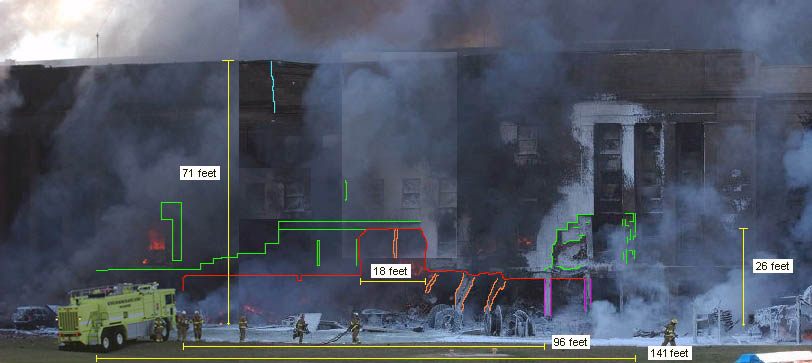Pentagon's Book Review: Impact On Military Academy Curricula

Table of Contents
Curriculum Development and the Pentagon's Book Review Process
The Pentagon's book review process is a multi-stage procedure designed to ensure the materials used in military academies align with current national security priorities and provide a robust educational foundation. The process involves several committees composed of subject matter experts, military historians, and active-duty personnel. These committees meticulously evaluate submitted books based on criteria such as relevance to current strategic challenges, historical accuracy, and the overall strategic value the book offers. The selection process is not merely about choosing books; it's about carefully curating a body of knowledge that shapes the minds of future military leaders.
- Inclusion of diverse perspectives: The selected books strive to offer a range of viewpoints, including perspectives on counterinsurgency, great power competition, and asymmetric warfare. This ensures a holistic understanding of the complex challenges facing the modern military.
- Emphasis on contemporary strategic challenges: The review process prioritizes books addressing contemporary issues such as cyber warfare, hybrid warfare, and information operations. These are crucial areas impacting modern conflict and require specialized understanding.
- Integration of emerging technologies: The curriculum, informed by the Pentagon's book review, incorporates the implications of Artificial Intelligence (AI), robotics, and space-based warfare into military doctrine. This ensures future officers understand and can leverage these technologies effectively.
- Examination of ethical considerations: The selected readings highlight the ethical dilemmas inherent in modern warfare, encouraging critical reflection and responsible decision-making among future leaders.
Specific examples of books influencing the curriculum are often not publicly released due to security concerns. However, the impact of these carefully chosen texts is evident in the evolving military doctrine and strategic thinking. The role of subject matter experts ensures that the selected readings are both academically rigorous and operationally relevant.
Impact on Strategic Studies and Leadership Training
The books selected through the Pentagon's book review process profoundly impact strategic studies and leadership training at military academies. These texts aren't merely assigned; they are tools for developing critical thinking and analytical skills. The process encourages students to analyze diverse viewpoints, fostering intellectual agility and the ability to synthesize complex information.
- Development of critical thinking skills: Students are challenged to analyze diverse perspectives and conflicting narratives presented in the reviewed texts, sharpening their critical thinking skills.
- Case study analysis: The books provide the foundation for case study analyses of historical military operations and conflicts, allowing for practical application of theoretical concepts.
- Improved understanding of geopolitical dynamics: Reviewed books enhance students' understanding of geopolitical dynamics and the complexities of international relations, providing a broader context for strategic decision-making.
- Enhanced application of theoretical frameworks: Assigned readings allow students to apply theoretical frameworks to real-world scenarios, bridging the gap between academic study and operational reality.
The selection of books also cultivates specific leadership qualities. The emphasis on adaptability, decision-making under pressure, and ethical conduct, often subtly woven into the narratives of chosen texts, equips future officers to handle the ethical and strategic challenges of modern warfare. While formal studies on the impact of reading lists on specific leadership traits are often classified, the rigorous selection process itself indicates an intention to cultivate these crucial qualities.
The Role of Approved Reading Lists in Shaping Military Doctrine
The Pentagon's book review process isn't just about education; it's a crucial mechanism for shaping future military strategies and operational doctrines. The approved reading lists directly influence the strategic thinking and operational approaches adopted by future military leaders.
- Alignment with national security objectives: Curricula are carefully aligned with current and evolving national security objectives, ensuring that future officers are prepared to meet the challenges defined by these objectives.
- Influence on war game scenarios and training exercises: Insights gleaned from approved texts directly inform war game scenarios and training exercises, making these exercises more relevant and realistic.
- Dissemination of updated military doctrine: Assigned readings ensure students are abreast of the latest strategic thinking and doctrinal developments, keeping them at the cutting edge of military theory and practice.
- Integration of lessons learned: The review process ensures that lessons learned from past conflicts, as documented and analyzed in reviewed books, are integrated into current military practices, preventing past mistakes and enhancing operational efficiency.
While the Pentagon's book review process is generally effective, potential challenges remain. Concerns about potential bias or limitations in perspectives are valid criticisms, requiring ongoing evaluation and refinement of the selection process. Future adaptation might involve incorporating diverse voices and perspectives even more effectively, embracing interdisciplinary approaches, and actively seeking out alternative viewpoints to ensure a balanced and comprehensive understanding of national security challenges.
Conclusion
The Pentagon's book review process is a powerful, albeit often overlooked, mechanism shaping the education of future military leaders. By carefully selecting texts that address crucial strategic challenges and promote critical thinking, the Pentagon ensures military academies cultivate officers equipped for the complexities of modern warfare. Understanding the impact of the Pentagon's Book Review on military academy curricula is vital for anyone seeking to comprehend the evolution of military strategy and leadership training. Further research into the specific books chosen and their influence on curriculum design will provide a more comprehensive understanding of this crucial aspect of military education. Learn more about the far-reaching effects of the Pentagon's Book Review and its influence on shaping the future of military leadership.

Featured Posts
-
 Ipswich Town Kieran Stevenson Focuses On The Future
May 11, 2025
Ipswich Town Kieran Stevenson Focuses On The Future
May 11, 2025 -
 Bayerns Championship Clinched Muller Bids Farewell At Allianz Arena
May 11, 2025
Bayerns Championship Clinched Muller Bids Farewell At Allianz Arena
May 11, 2025 -
 Jessica Simpsons Comeback Performance A Look At Her 15 Year Absence And Return
May 11, 2025
Jessica Simpsons Comeback Performance A Look At Her 15 Year Absence And Return
May 11, 2025 -
 Thomas Muellers Farewell Bayern Munichs Bundesliga Victory Celebration At Home
May 11, 2025
Thomas Muellers Farewell Bayern Munichs Bundesliga Victory Celebration At Home
May 11, 2025 -
 Aaron Judges 2025 Outlook Key Performance Indicators For Yankees Fans
May 11, 2025
Aaron Judges 2025 Outlook Key Performance Indicators For Yankees Fans
May 11, 2025
